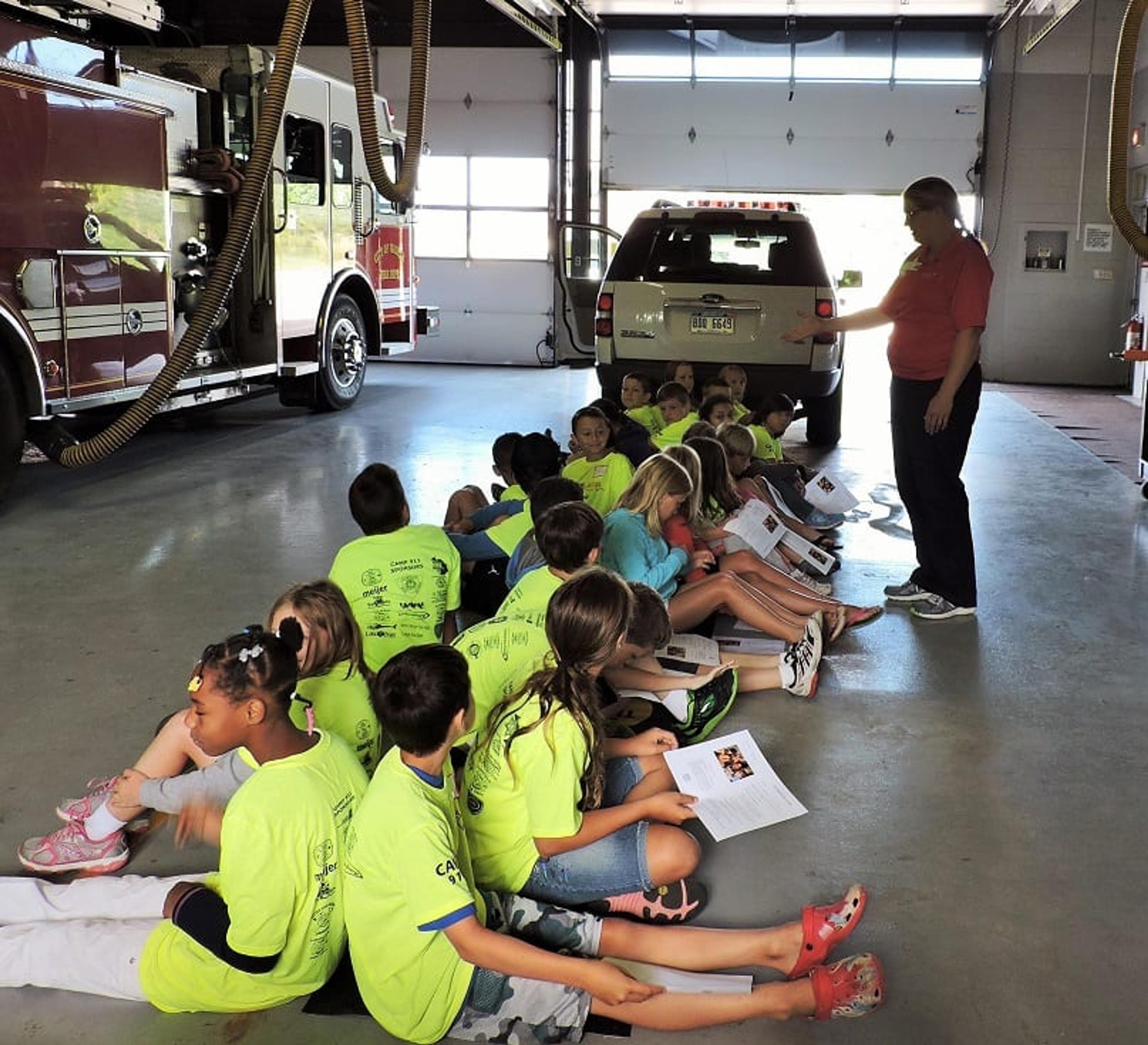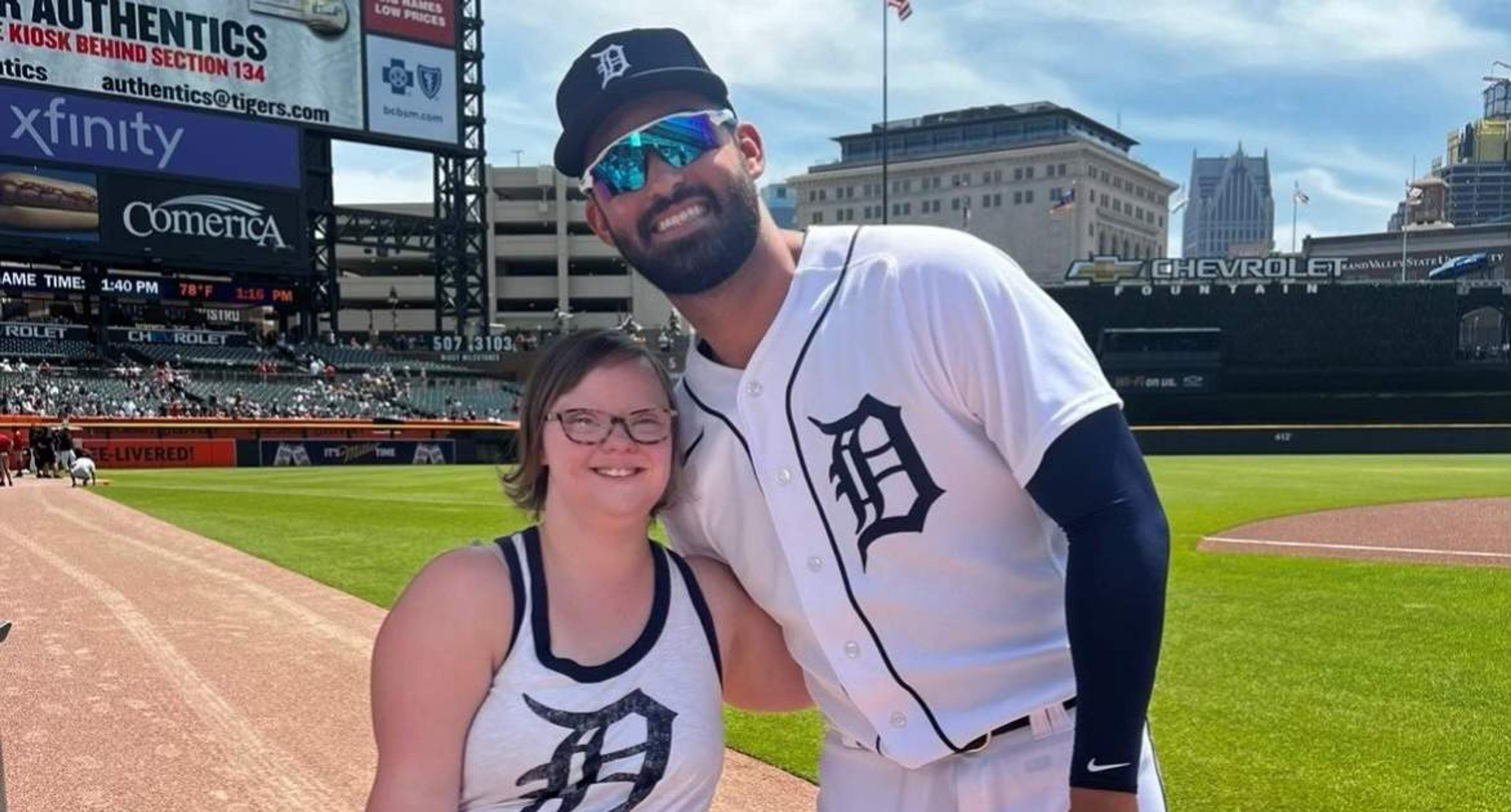Danger in the driveway: Prevent car-related tragedies

Julie Bitely
| 3 min read

Safe Kids Coordinator Jennifer Hoekstra teaching kids at Camp 911 about the danger of a vehicle’s blind spot. Of the kids in this photo, only the last four were visible from the driver’s seat.
When Amy Horn’s husband was 5, he watched helplessly as his two-year-old brother was backed over by his dad. The young boy didn’t survive. Horn said her father-in-law still feels horrible, 40 years after the accident.
Horn, an Injury Prevention Assistant with Safe Kids Greater Grand Rapids, shared her family’s tragedy with attendees of a recent Life EMS Ambulance Camp 911.
Kids at the camp learned lifesaving advice about staying safe in and around vehicles, that’s beneficial for parents too.
Blind spot
“In the United States, a child is backed over every hour”, said Jennifer Hoekstra, Safe Kids Greater Grand Rapids Coordinator. Most vehicles have a 20-foot blind spot. If a child is behind your car, you likely won’t see them.
“Kids get backed over in their driveways all the time,” Hoekstra said.
She advises parents to completely walk around their vehicle before getting inside and backing up. The extra time it will take, is worth the grief it could cause not to.
Heatstroke tragedy
The number one cause of non-crash deaths for kids, under the age of 14, is heatstroke.
When it’s 75 degrees and sunny, a parked car heats up quickly. In 10 minutes, internal car temperatures can rise to 105 degrees. After 30 minutes, 120 degrees. At 107 degrees, organs start shutting down.
Many cases of heatstroke are attributed to caretakers forgetting a child due to a change in routine. Create a reminder by putting a shoe in the backseat or placing the diaper bag by you. Hoekstra said it doesn’t matter, as long as the reminder you create makes you check the backseat.
If you see a child alone in a hot car, first make sure there are no adults nearby. If the child is indeed alone, call 911.
Heatstroke deaths don’t just happen to small children. In the past ten years, 21 kids older than 13 have died in a hot vehicle. Hoekstra said parents should warn kids about napping or playing in cars as they could accidentally become trapped inside.
Never leave kids in the car alone, even if you think they’re old enough to stay there for five minutes while you run into the store. Leaving keys in the ignition with the air conditioning running is not a good option.
“Until you know how to drive a car, you shouldn’t be in a car alone,” Hoekstra said.
Trunk safety
It might seem obvious that trunks aren’t safe to play in, but Hoekstra said sometimes kids are drawn to the small, enclosed space.
“A trunk is never a place for people,” she warned campers.
She did urge kids and parents to check their trunk for an emergency release lever. In the event of a kidnapping, the lever could be a lifesaver.
Check out these resources from Safe Kids about staying safe in and around the car.
Photo credit: Julie Bitely





